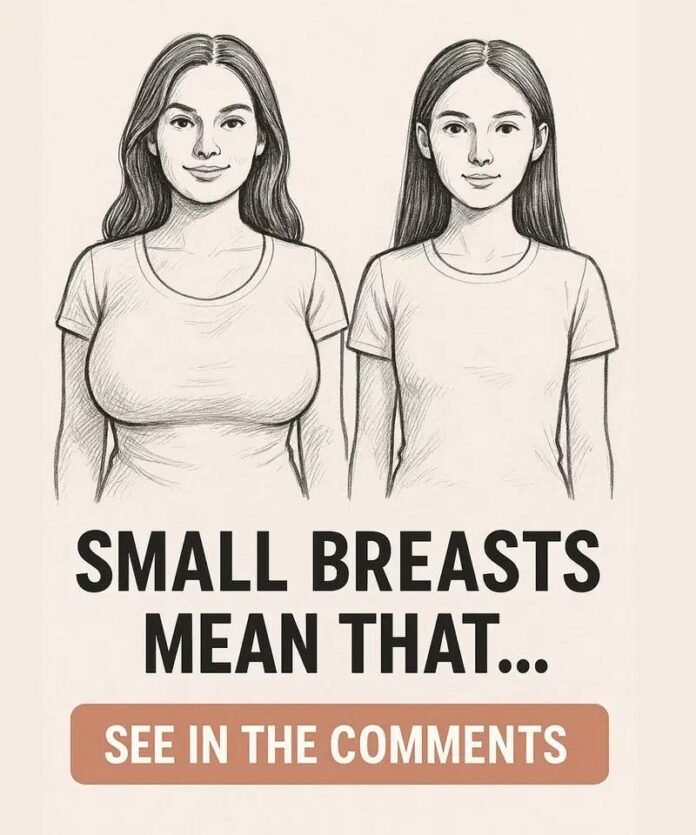For decades, breast size has been a topic of fascination, myth, and misunderstanding. Many women, especially as they grow older, begin to wonder if the size or shape of their breasts has any connection to their hormonal health. Some worry that changes in breast size reflect deeper health concerns, while others have heard conflicting advice about whether their body type might influence overall wellness.
The truth is more nuanced than simple myths suggest. Breast size is influenced by many factors—some you can control, and others you cannot. And while hormones do play a role, your long-term well-being is shaped by much more than cup size. For women over 60, understanding how hormonal balance, lifestyle, and natural health habits intersect with breast health can bring both reassurance and empowerment.
This article will explore the relationship between breast size and hormonal health, debunk myths that have lingered for generations, and share practical wellness strategies tailored for women in their golden years.
The Biology Behind Breast Size
Breast development begins early in life, guided largely by genetics and hormones. During puberty, rising levels of estrogen and progesterone stimulate the growth of breast tissue. By the time a woman reaches adulthood, her natural breast size is mostly determined.
But that’s not the end of the story. Throughout life, breast tissue responds to a variety of influences:
- Age: As women move into midlife and beyond, natural hormonal changes often affect the density and firmness of breast tissue.
- Weight: Because breasts contain fatty tissue, fluctuations in body weight can increase or decrease their size.
- Lifestyle: Nutrition, exercise, and stress all contribute to how the body regulates hormones, which in turn influences breast health.
Most importantly, breast size is not a reliable measure of health. Women with smaller breasts are no less healthy than those with larger ones. And while some research suggests possible connections between body type and certain conditions, these patterns are not rules that apply universally.
Common Myths About Breast Size and Hormonal Health
Over the years, countless myths have shaped how women view their bodies. Let’s set the record straight on a few of the most common misconceptions.
Myth 1: Small breasts mean poor hormonal health
This idea is simply not true. Hormonal balance is influenced by nutrition, stress levels, sleep quality, and overall lifestyle choices—not breast size. A woman with smaller breasts can enjoy excellent hormonal health well into her later years if she supports her body with healthy habits.
Myth 2: Large breasts automatically increase health risks
While some studies suggest that women with larger breasts—especially when combined with excess body weight—may face a slightly higher risk of conditions like diabetes or cardiovascular issues, this does not apply to every woman. Maintaining a healthy weight, staying active, and managing stress are far more important for long-term health than breast size alone.
Myth 3: Breast size defines femininity
For many women, this myth has been the most damaging. True femininity has nothing to do with measurements. Confidence, vitality, emotional strength, and self-care matter far more than physical appearance. Aging gracefully means celebrating the body you have, not comparing it to outdated ideals.
Hormonal Health Matters at Every Age
While breast size often draws attention, the real story lies in hormonal balance. For women over 60, shifts in estrogen and progesterone levels can affect energy, mood, and overall wellness. Supporting your hormones through lifestyle choices can make a powerful difference.
Here are some essential strategies:
1. Prioritize a Balanced Diet
Nourishment plays a central role in hormonal health. Choose colorful fruits, leafy greens, whole grains, lean proteins, and healthy fats. Omega-3-rich foods like salmon, walnuts, and flaxseed help stabilize hormones and reduce inflammation.
2. Stay Physically Active
Movement keeps the body strong and supports healthy hormone regulation. Walking, swimming, yoga, and gentle strength training are excellent choices for women in their 60s and beyond. Exercise not only supports breast health but also strengthens bones, improves heart health, and boosts mood.
3. Manage Stress with Care
Chronic stress disrupts the delicate balance of hormones, often leading to fatigue, weight changes, or sleep troubles. Relaxation techniques such as meditation, deep breathing, tai chi, or simple daily walks can help restore calm and protect overall wellness.
4. Consider Natural Supplements
Some natural remedies may support hormonal balance, though it’s always best to consult a healthcare professional first. Supplements like evening primrose oil, black cohosh, or vitex have been traditionally used to ease hormonal fluctuations. Each woman is different, so professional guidance is essential.
Natural Remedies That Support Women’s Wellness
Alongside nutrition and exercise, certain natural remedies have stood the test of time in promoting women’s health. These can be simple, soothing additions to your daily routine:
- Sage tea: Often used for centuries to support hormonal balance, sage tea may also provide comfort during hormonal transitions.
- Maca root: Known as a natural energy booster, maca is often taken in powder or capsule form to support vitality and hormonal health.
- Ginger tea: Gentle on the stomach and naturally anti-inflammatory, ginger tea can aid digestion and support overall well-being.
These remedies are not replacements for medical care, but they can complement a healthy lifestyle and provide comfort along the way.
Breast Size, Hormones, and Aging Gracefully
It is natural for breast size and shape to change with age. Skin elasticity, muscle tone, and hormonal shifts all play a role. For women entering their 60s and beyond, these changes are not signs of decline but of life’s natural rhythm. What matters most is supporting the body with kindness, attention, and care.
Remember, breast size alone does not predict health outcomes. Instead, focus on daily habits that keep your hormones in balance, your body strong, and your spirit at peace. A life rich in movement, wholesome food, and joyful connection is the true foundation of wellness.
Breast size may influence how women see themselves, but it does not define health, vitality, or worth. Hormonal balance, lifestyle choices, and self-care are the real building blocks of lifelong well-being.
For women over 60, embracing this truth can bring freedom. Instead of worrying about body measurements, focus on creating a lifestyle that nurtures both mind and body. Whether through nourishing meals, calming practices, or natural remedies, you can support hormonal health and age with strength, grace, and confidence.
Always consult a trusted healthcare provider before making major changes to your diet, supplement routine, or exercise plan. Every woman’s body is unique, and personalized guidance ensures the best results.
Your health journey is about more than size—it’s about living fully and feeling your best at every stage of life.



